21 Most Popular Arizona National Monuments and Parks, According to Visitor Stats

Arizona is packed with epic desert landscapes and lots of cliffside dwellings that attract millions of visitors each year. Having lived in a van for two years and road-tripped through nearly 40 states, I can confidently say that Arizona has some of the most breathtaking landscapes I’ve ever explored.
But which federally preserved sites get the most love from visitors?
Taken from official National Park Service visitation records, we’re ranking all 21 Arizona national monuments and parks in order of popularity. Spoiler Alert: there’s a good chance you already know the top contender.
1. Grand Canyon National Park
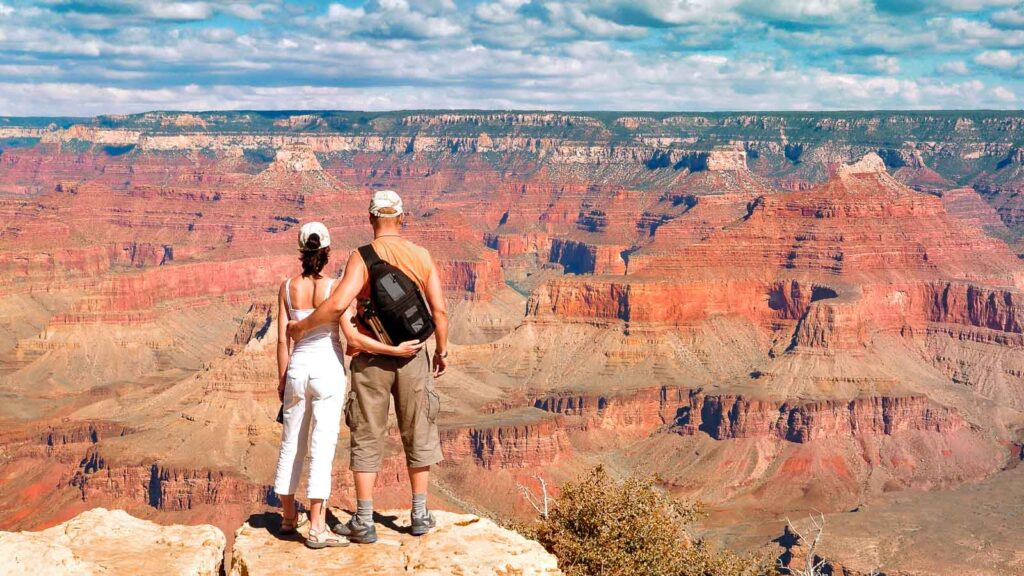
- Visitors: 4,733,705
Did you know the Grand Canyon is so large it could fit the entire state of Rhode Island within its gorges? With almost 5 million visitors annually, it’s one of the most iconic landmarks in the USA!
Spanning 277 miles in length, up to 18 miles in width, and reaching depths of over a mile, it’s estimated that the Grand Canyon’s formation began over 5 million years ago. The Colorado River, which carved the canyon, flows for 446 miles and drops about 2,200 feet in elevation throughout the park.
Activities: Hike along the Bright Angel Trail or the South Kaibab Trail for a challenging descent below the rim, while a helicopter tour provides an unforgettable aerial view. Dare to step out over the Skywalk at Eagle Point for a thrilling walk 4,000 feet above the canyon floor.
2. Lake Mead National Recreation Area, Boulder City, AZ/NV
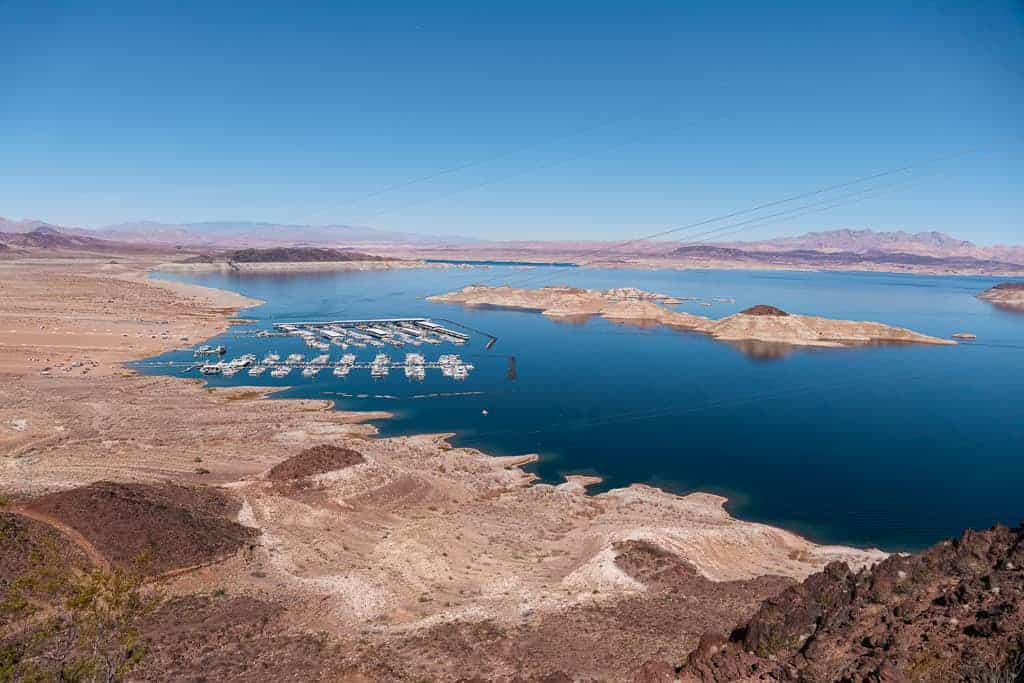
- Visitors: 1,449,635
Lake Mead is the largest reservoir in the United States, holding up to 28.9 million acre-feet of water when full. This artificial lake was created by the Hoover Dam and has over 550 miles of shoreline over 1.5 million acres. You’ll find crystal-clear waters perfect for boating and kayaking, plus numerous beautiful hiking trails into the desert.
Activities: Engage in water sports like boating, fishing, or paddleboarding, or explore the scenic trails around the lake. Take a trip around the historic Hoover Dam in the dam and in the waters below.
3. Glen Canyon National Recreation Area, Page
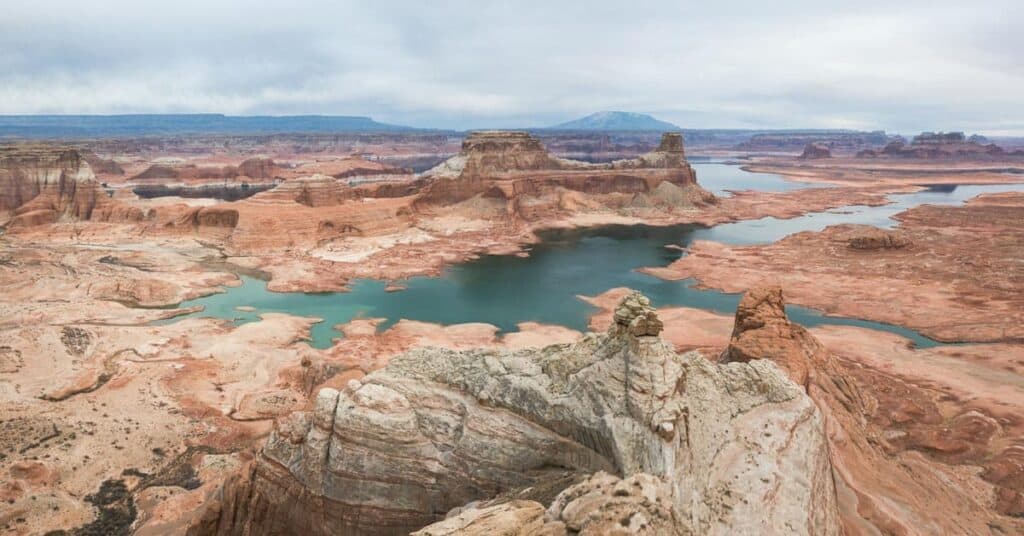
- Visitors: 1,141,021
Right after Lake Mean, Glen Canyon is home to Lake Powell, America’s second-largest man-made reservoir and one of the dreamiest lakes in the nation. It has more than 2,000 miles of shoreline —more than the entire west coast of the U.S.!
Glen Canyon National Recreation Area is a playground of towering red rock formations, water-filled canyons, and expansive desert landscapes. With incredible features like Rainbow Bridge, one of the world’s largest natural bridges, and the famous Antelope Canyon, there are countless opportunities for boating, fishing, and hiking within its waters.
Activities: Enjoy water sports such as kayaking and jet skiing, or take a guided boat tour to Rainbow Bridge. Hiking and exploring the intricate slot canyons are also must-do activities.
4. Saguaro National Park, Tucson
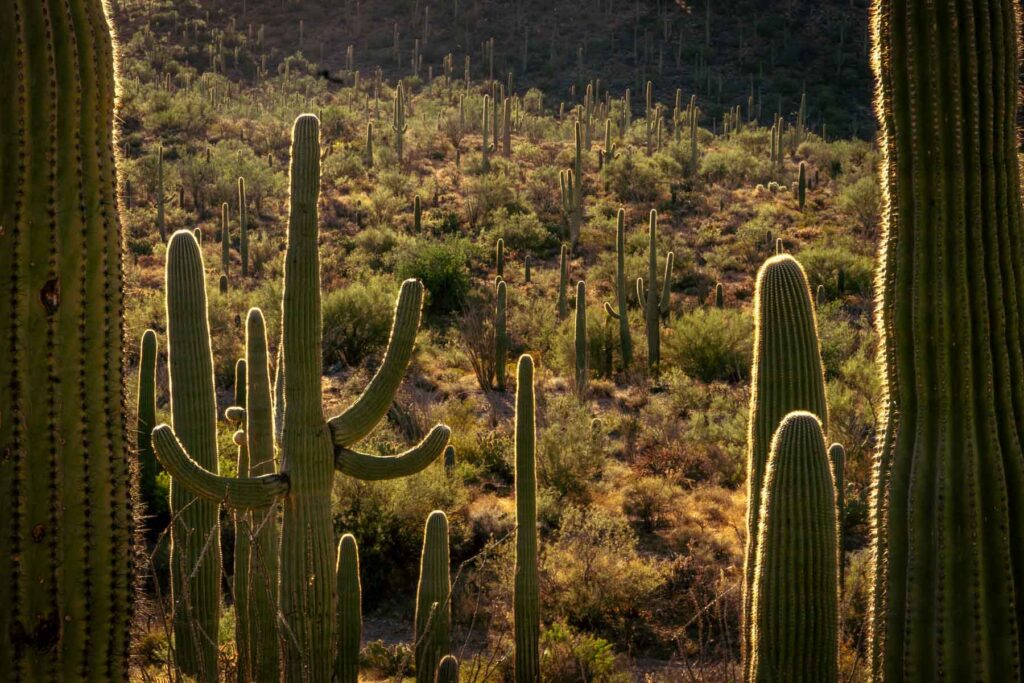
- Visitors: 1,010,906
Home to the iconic saguaro cactus, which can grow over 40 feet tall and live for more than 150 years, Saguaro National Park spans over 91,000 acres.
The park is split into two distinct districts—Rincon Mountain District to the east and Tucson Mountain District to the west. They are very different experiences, one focusing more on dense cactus forests and the other rolling mountains.
Activities: Hike the Hugh Norris Trail for breathtaking views or drive the Bajada Loop Drive. Get your sunset views from the Gates Pass overlook for the perfect end to a desert adventure.
5. Petrified Forest National Park, Holbrook
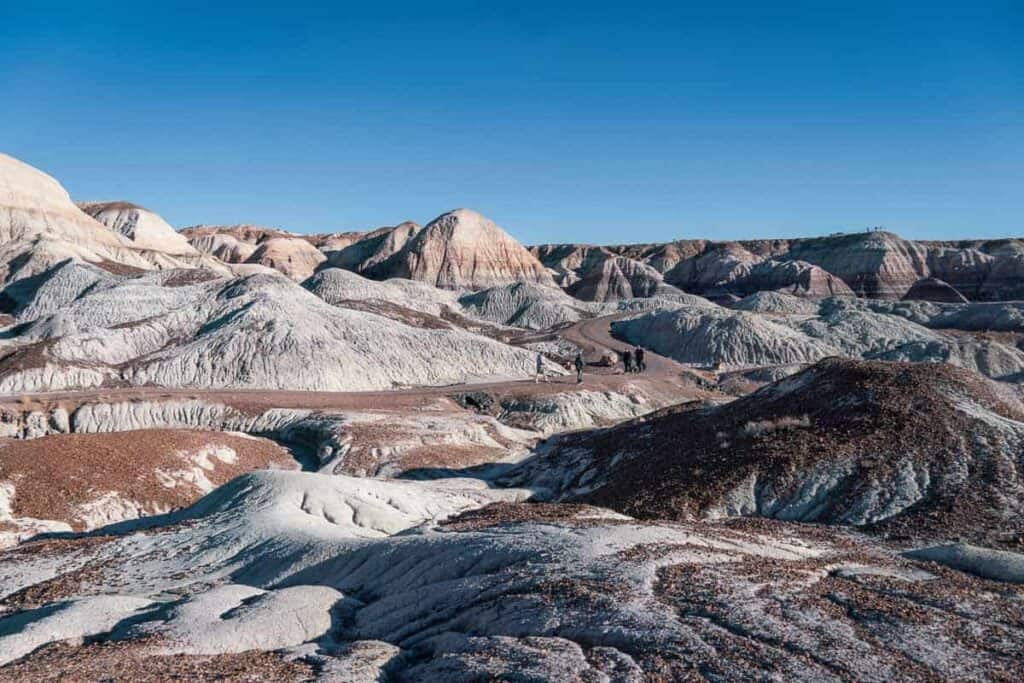
- Visitors: 520,491
Petrified Forest National Park is famous for its colorful and well-preserved petrified wood, dating back over 200 million years! It covers roughly 230 square miles of high desert terrain and the surreal landscapes of the Painted Desert. Walk amongst ancient logs turned to stone and enjoy the vibrant badlands. The park also has historic Route 66 alignments and petroglyphs.
Activities: Take the paved trails to view incredible petrified logs and definitely hike the Blue Mesa Trail. Visit the Painted Desert Visitor Center, which has incredible views of the otherworldly painted desert landscapes.
6. Montezuma Castle National Monument, Camp Verde
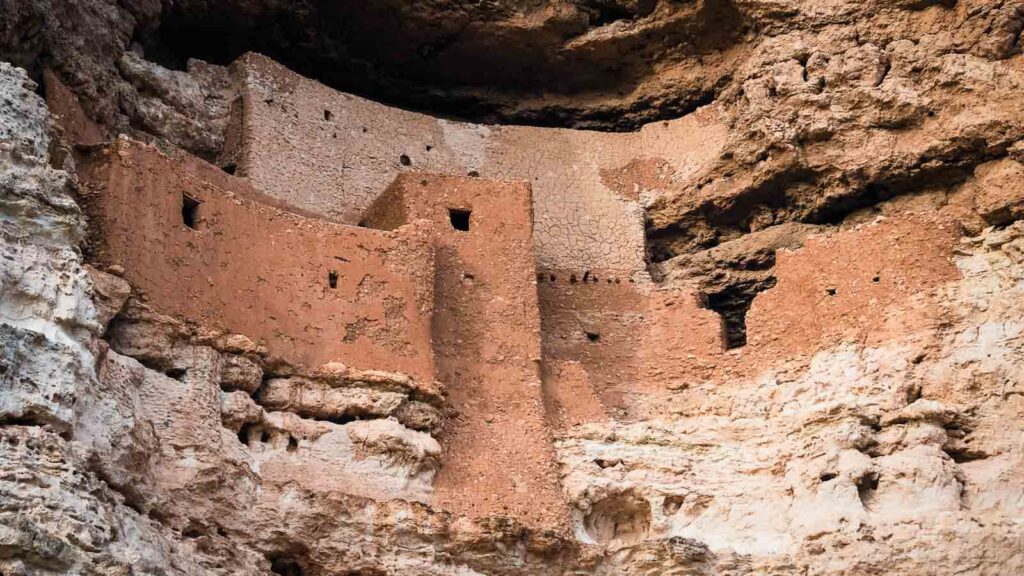
- Visitors: 367,239
Montezuma Castle is a five-story cliff dwelling built by the Sinagua people in the 12th century, making it one of the best-preserved prehistoric structures in North America! The monument includes a series of ancient dwellings nestled into a limestone cliff. See well-preserved rooms and artifacts that offer insight into the lives of the Sinagua surrounded by Beaver Creek.
Activities: Take a short walk to view the impressive cliff dwellings and learn about their history at the visitor center. Very often, there are ranger-led programs, including archeology talks and hikes to the nearby Montezuma Well.
7. Canyon de Chelly National Monument, Chinle
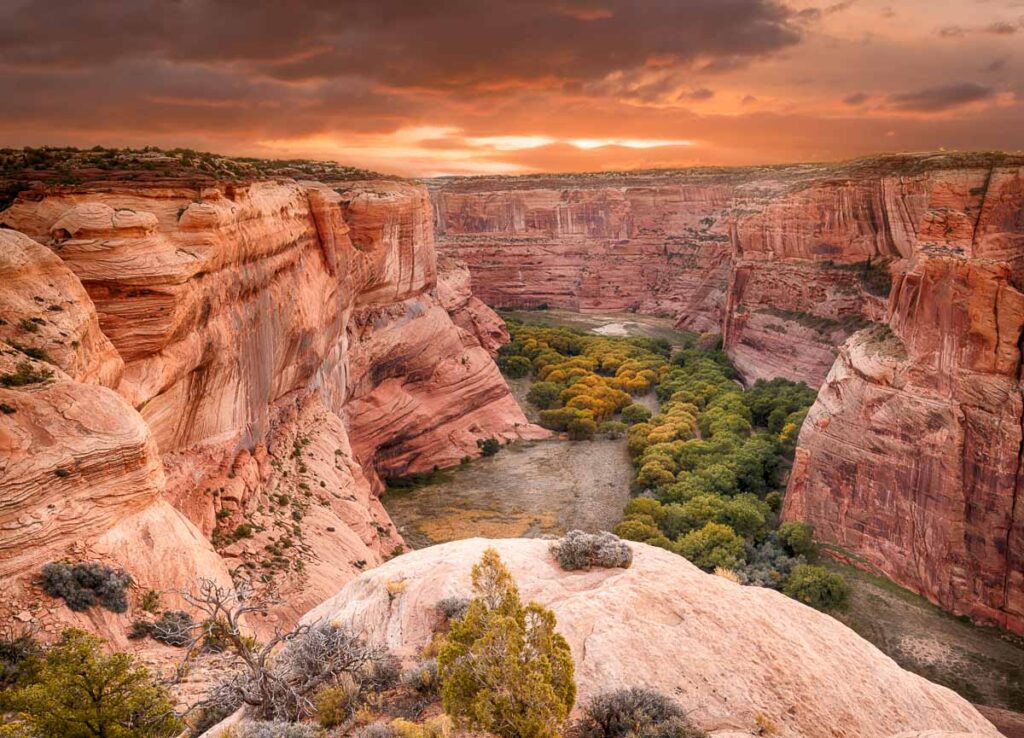
- Visitors: 333,349
Canyon de Chelly is a living community for the Navajo people, with sheer red cliffs rising up to 1,000 feet. Spread over nearly 84,000 acres, the canyon holds centuries of history and culture. You can see ancient cliff dwellings, petroglyphs, and the Spider Rock spire.
Activities: Explore the canyon through guided tours led by Navajo guides or drive to the scenic overlooks accessible by car. Hiking and horseback riding are popular ways to get around too.
8. Wupatki National Monument, Flagstaff
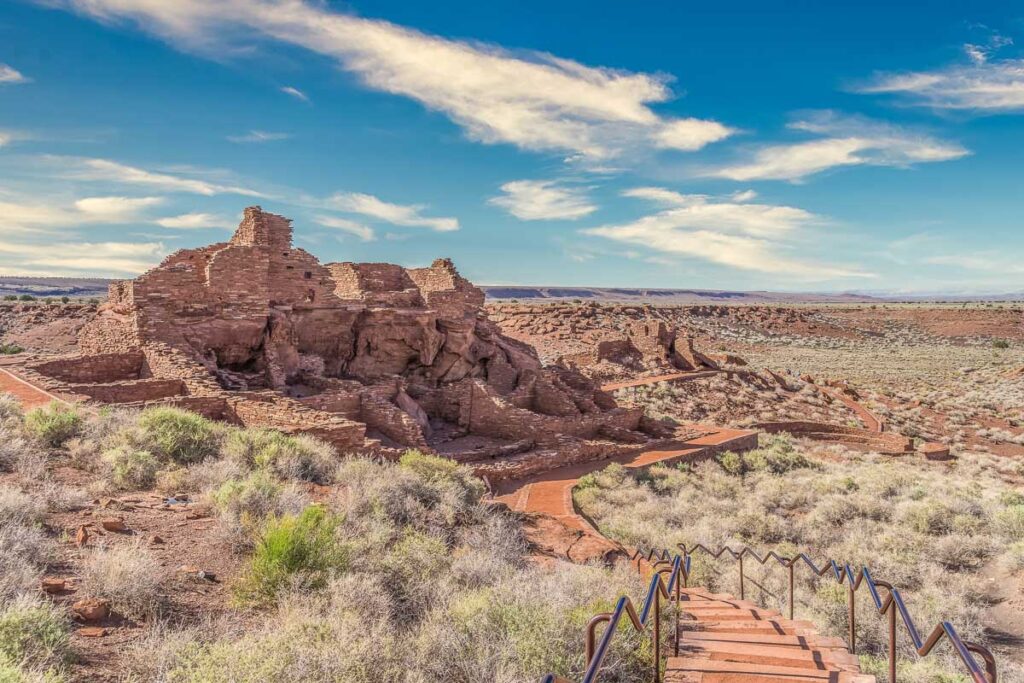
- Visitors: 215,703
Wupatki is home to several ancient pueblos that were once bustling communities in the high desert. The monument showcases large, multi-story dwellings that tell stories of ancient trade and culture. You’ll find ball courts, community rooms, and an impressive 100-room pueblo.
Activities: Walk the trails connecting various pueblos and explore the main Wupatki Pueblo to better understand the area’s history. The visitor center explains the significance of these ancient structures.
9. Organ Pipe Cactus National Monument, Ajo
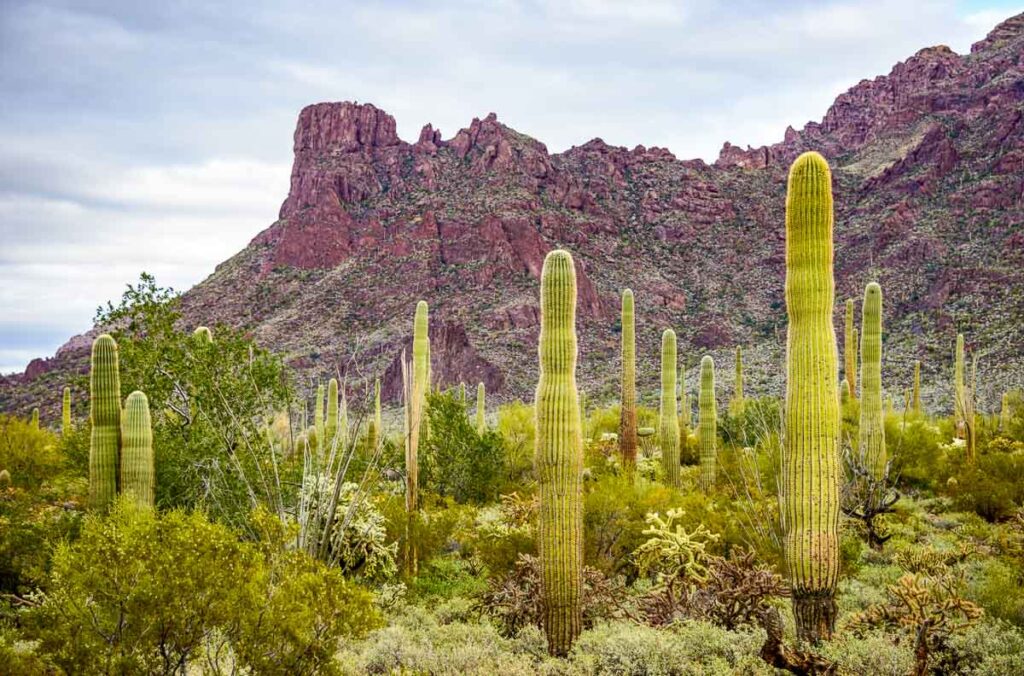
- Visitors: 186,601
This is the only place in the U.S. where you can see the organ pipe cactus, which can reach heights of up to 26 feet. The monument covers over 330,000 acres of the Sonoran Desert, filled with cacti and desert plants and stunning mountain and desert vistas. The night skies here are exceptionally dark and perfect for stargazing.
Activities: Drive the 21-mile Ajo Mountain Drive or hike the many trails like the Desert View Trail. Camping and stargazing are also popular activities.
10. Walnut Canyon National Monument, Flagstaff
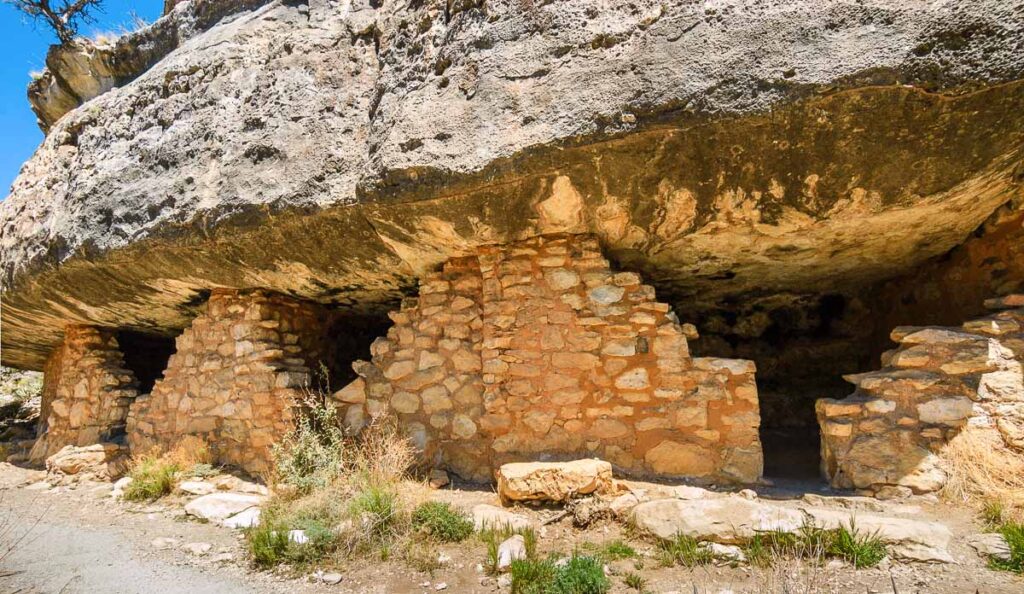
- Visitors: 152,548
Walnut Canyon is renowned for its ancient cliff dwellings, which date back over 800 years. The canyon itself is a striking formation of limestone layers. Walking through, you’ll see ancient rooms built into the canyon walls and have sweeping views of the surrounding forest.
Activities: Hike the Island Trail to get close to the cliff dwellings, or take the Rim Trail for the best views. The visitor center has exhibits and information about the area’s history.
11. Coronado National Memorial, Hereford
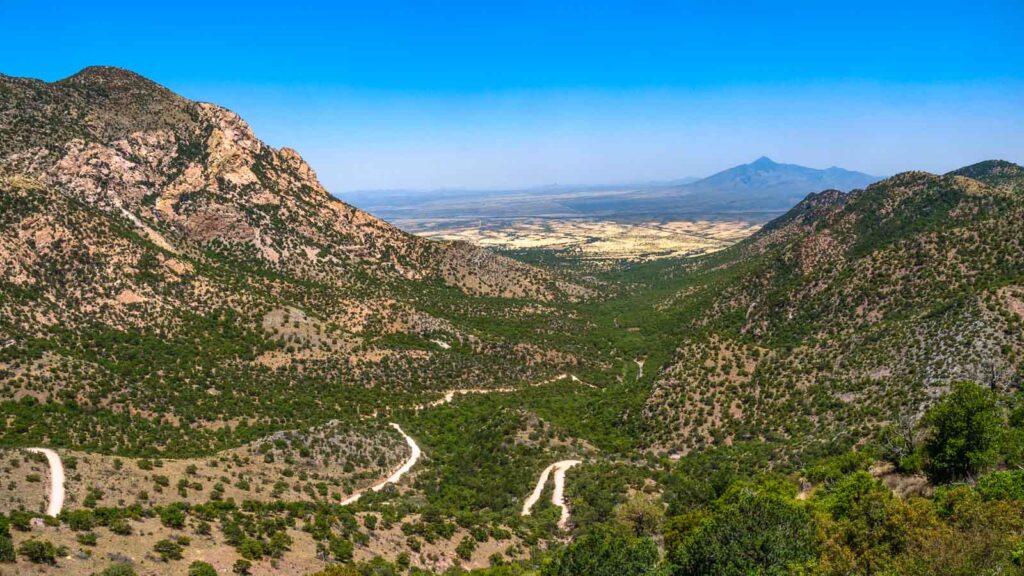
- Visitors: 140,089
Commemorating the first organized European expedition into the Southwest, led by Francisco Vázquez de Coronado in 1540, this area features ecosystems from oak woodlands to grasslands. You can see the vistas of the Mexican border and the San Pedro River Valley.
Activities: Hike the Coronado Peak Trail or explore the Coronado Cave, a large limestone cavern. The memorial also has a visitor center with exhibits and information about the region’s history.
12. Casa Grande Ruins National Monument, Coolidge
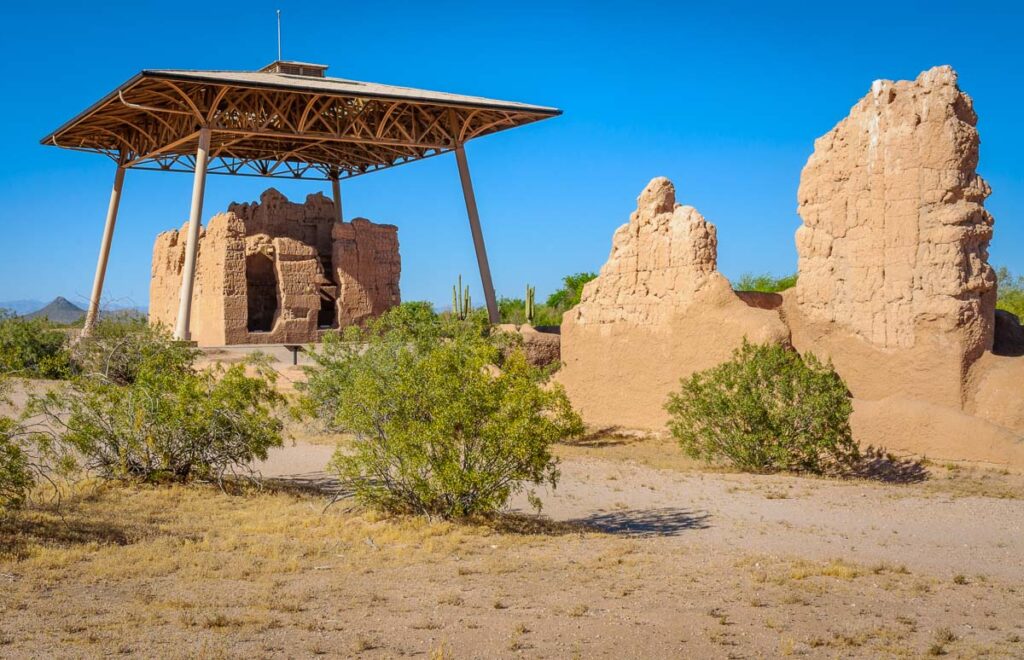
- Visitors: 111,392
Casa Grande Ruins has the impressive four-story “Great House,” built by the Hohokam people over 600 years ago. The monument includes a collection of ancient structures spread across 472 acres. You’ll see remnants of an advanced farming society that flourished in the arid desert. The “Great House” is the highlight.
Activities: Join a guided tour to learn about the achievements of the Hohokam civilization and its extensive irrigation systems.
13. Tuzigoot National Monument, Clarkdale
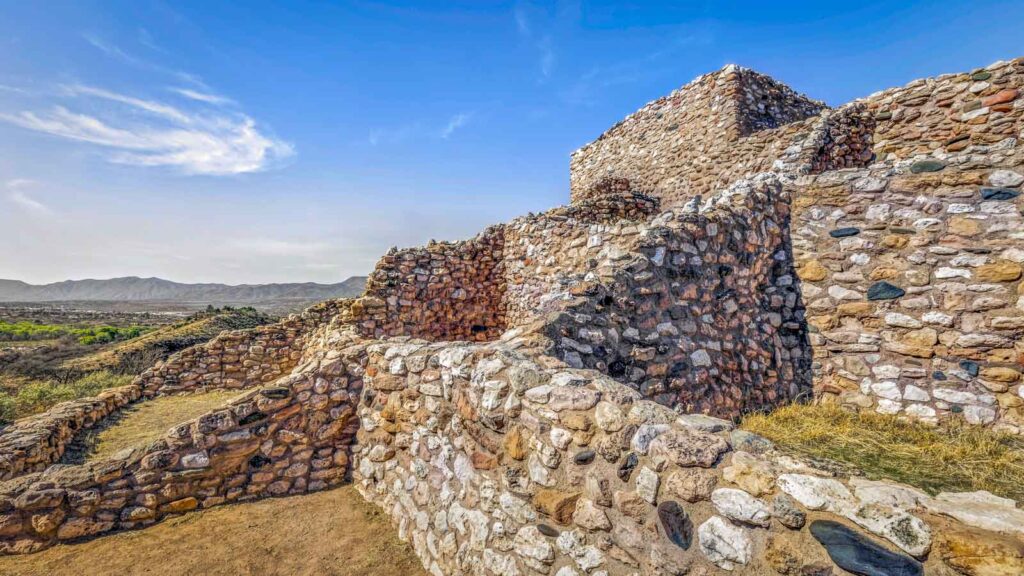
- Visitors: 102,936
Tuzigoot is a pueblo ruin with 110 rooms, built by the Sinagua people between 1000 and 1400 AD. The monument spans 42 acres with great views of the Verde Valley. You’ll walk through these ancient rooms and see detailed stonework that tells stories of the Sinagua culture. It’s perched on a ridge, giving you a nice vantage point of the valley below.
Activities: Stroll through the reconstructed ruins and climb to the rooftop for a view of the Verde Valley. The museum has pottery and tools from the Sinagua people.
14. Sunset Crater Volcano National Monument, Flagstaff
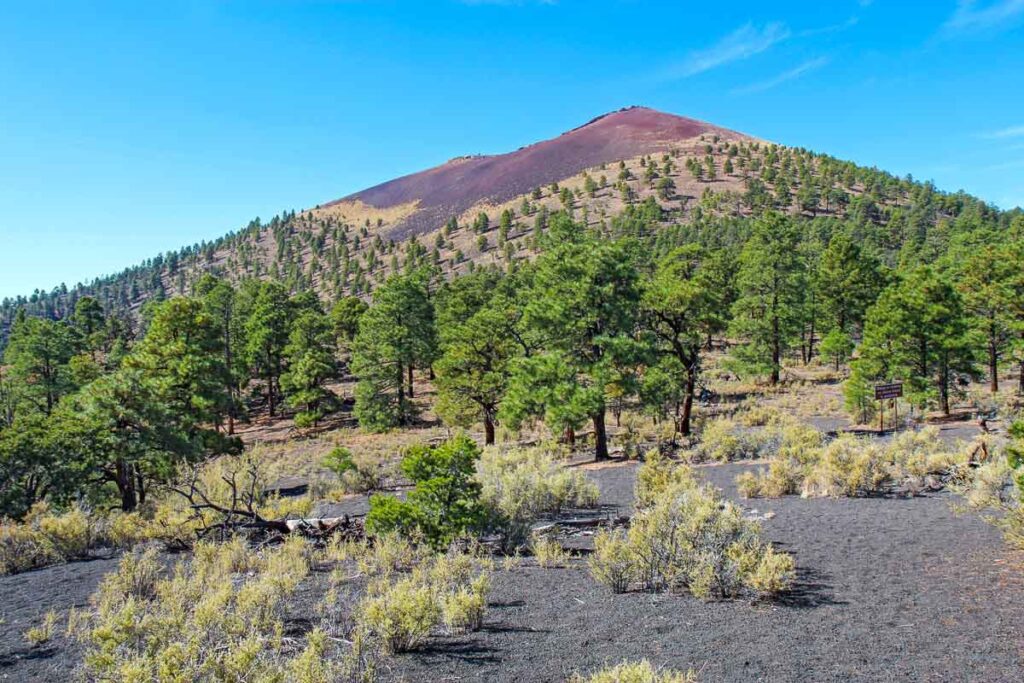
- Visitors: 81,519
Sunset Crater Volcano erupted around 1085 AD, creating a dramatic volcanic landscape that remains largely untouched. The monument has everything from cinder cones to lava flows and colorful volcanic rocks. The otherworldly terrain contrasts starkly with the surrounding pine forests.
Activities: Walk the Lava Flow Trail to the unique volcanic formations or join a ranger-led program to learn more about the area’s geology.
15. Chiricahua National Monument, Willcox
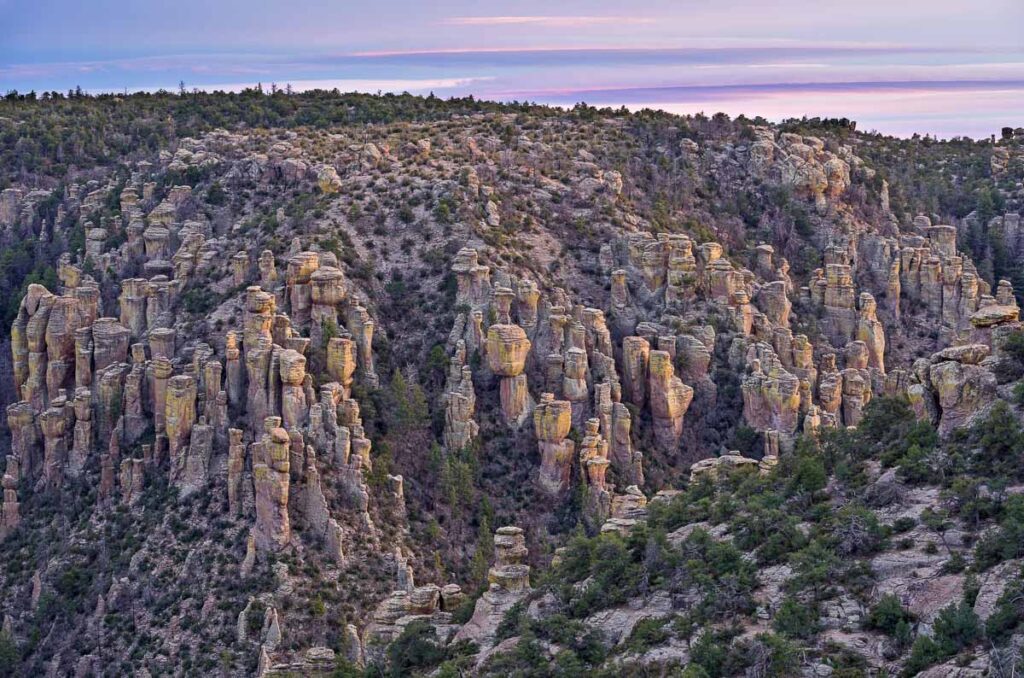
- Visitors: 62,582
Known as the “Wonderland of Rocks,” Chiricahua has towering rock formations and balanced boulders created by volcanic eruptions millions of years ago. Hiking through here, you’ll encounter dramatic rock spires and pinnacles that create a surreal landscape. The diverse flora and fauna in this transition zone between desert and mountain ecosystems are also fascinating.
Activities: Hike the Heart of Rocks Loop to see some of the most impressive formations up close or drive the scenic Bonita Canyon Drive.
16. Hubbell Trading Post National Historic Site, Ganado
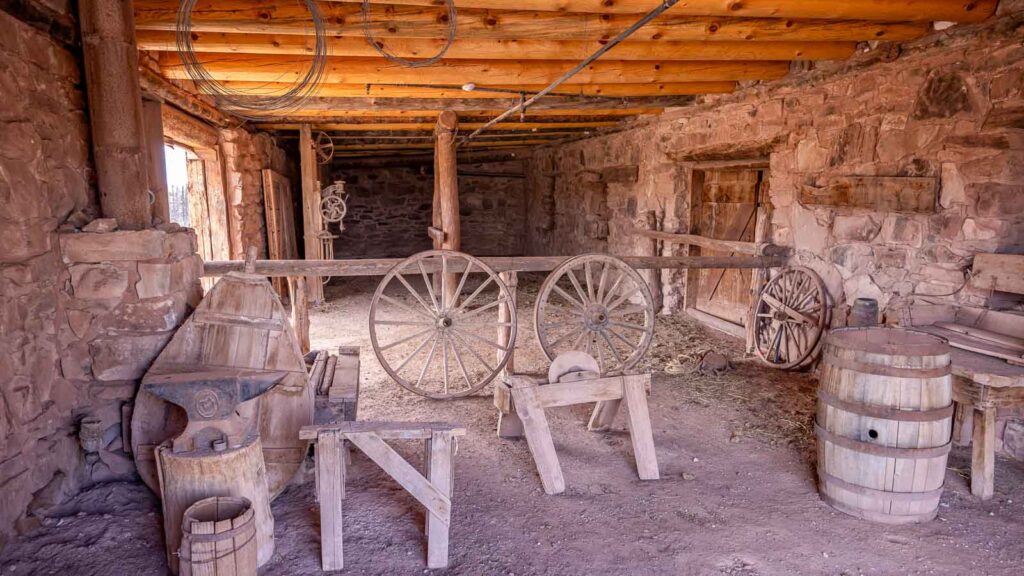
- Visitors: 54,187
Established in 1878, Hubbell Trading Post is the oldest continuously operating trading post on the Navajo Nation. The site includes historic buildings and traditional Navajo weaving demonstrations. Walk around to see the original trading post, the Hubbell family home, and beautiful handmade Navajo rugs.
Activities: Tour the historic trading post and watch demonstrations of Navajo weaving. You can also purchase authentic Native American crafts and enjoy a self-guided walking tour of the grounds.
17. Navajo National Monument, Shonto
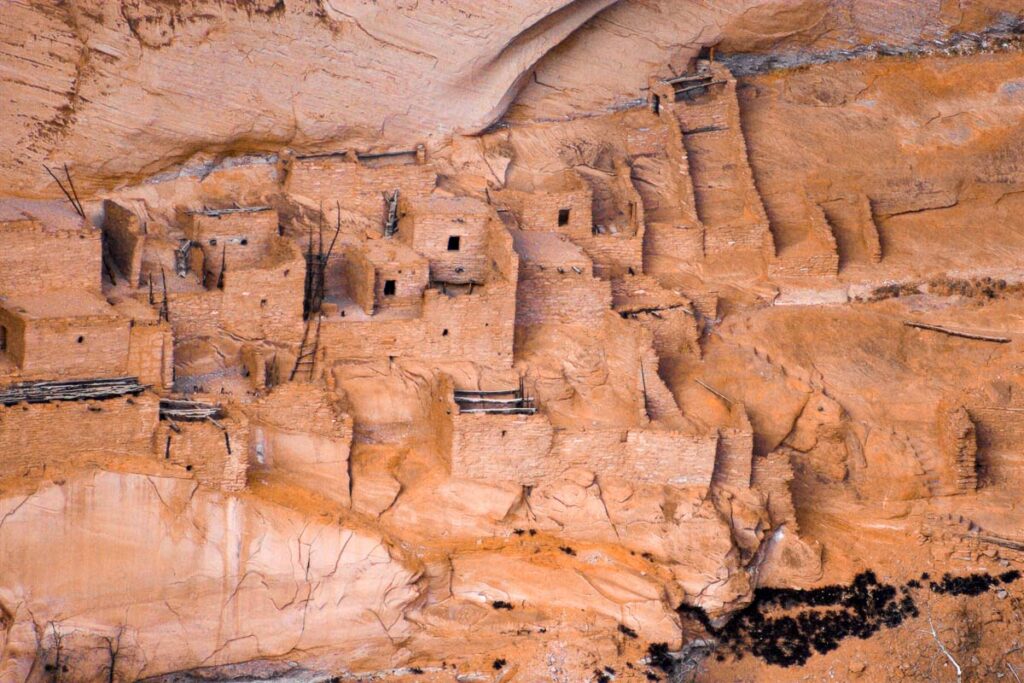
- Visitors: 44,180
Navajo National Monument preserves three cliff dwellings from the Ancestral Puebloan people, dating back to the 13th century. The monument covers about 360 acres of rugged, scenic terrain. At Betatakin, you’ll see ancient ruins tucked into a canyon alcove while Keet Seel peers into the lives of past inhabitants. The landscape is dotted with junipers and pinyons.
Activities: Take a ranger-led tour to Betatakin or hike the Sandal Trail for great views. For an immersive experience, learn more from the museum’s exhibits in the visitor center.
18. Tumacacori National Historical Park, Tumacacori
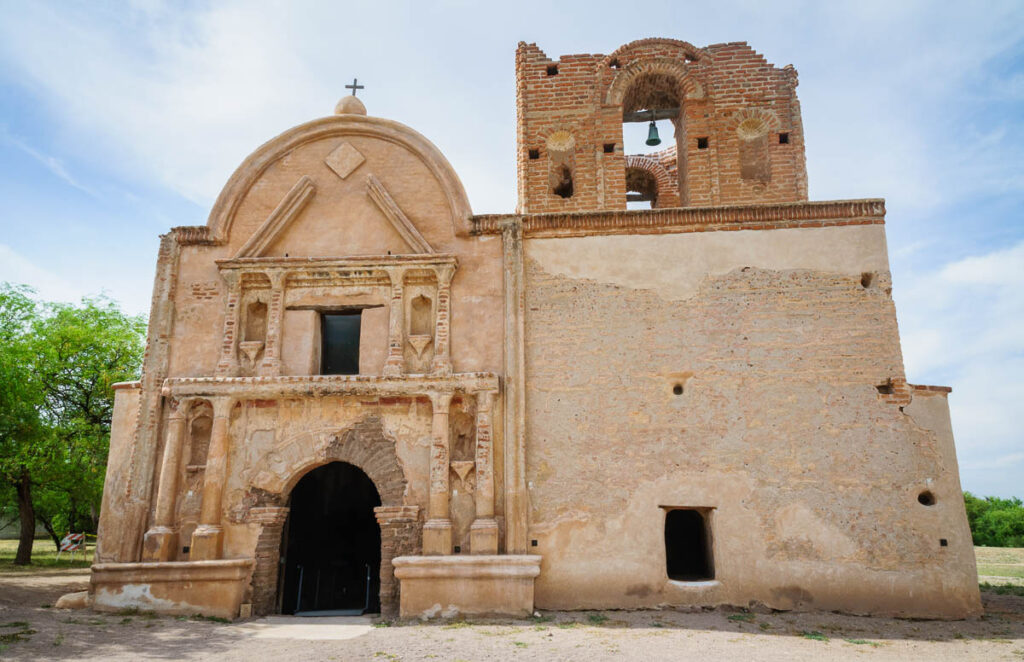
- Visitors: 37,872
Tumacacori is home to three Spanish mission ruins dating back to the late 1600s. The park covers 360 acres and includes beautifully preserved mission buildings and traditional adobe structures. Well-kept gardens and pathways lead through the historic grounds.
Activities: Walk through the mission grounds and check out the informative exhibits at the visitor center. Look for cultural events like traditional craft demonstrations throughout the year.
19. Tonto National Monument, Roosevelt
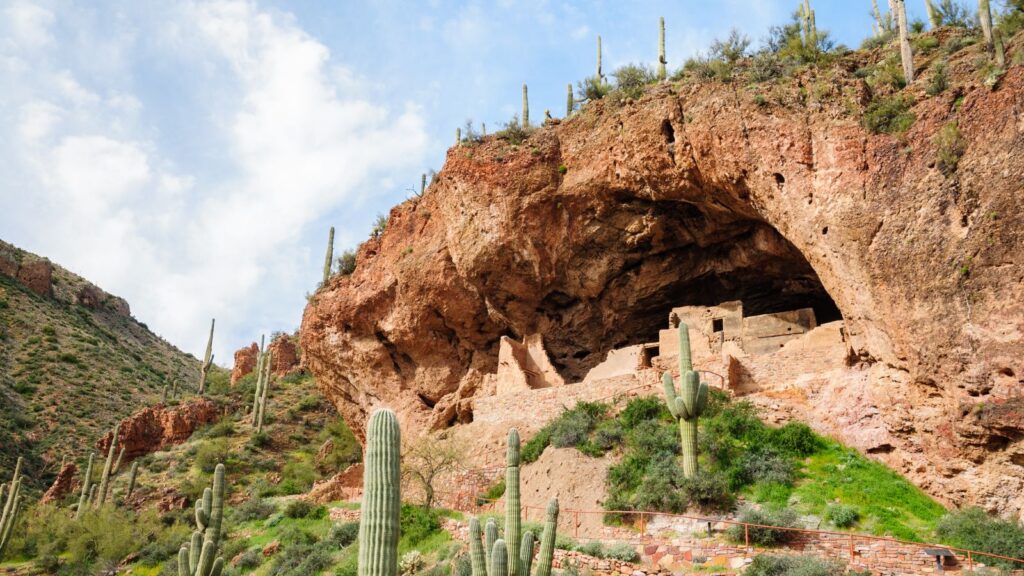
- Visitors: 31,216
Tonto National Monument showcases cliff dwellings built by the Salado people in the 13th century. The area spans 1,120 acres overlooking Theodore Roosevelt Lake. You’ll see well-preserved ruins packed with archeological artifacts, and the views of Tonto Basin are pretty neat. It’s a solid spot for history fans and those who love a good hike.
Activities: Hike up to the Lower Cliff Dwelling for a closer look at these ancient structures and enjoy the interpretive trail. Make sure to visit the museum at the visitor center to see pottery and other artifacts up close.
20. Pipe Spring National Monument, Moccasin
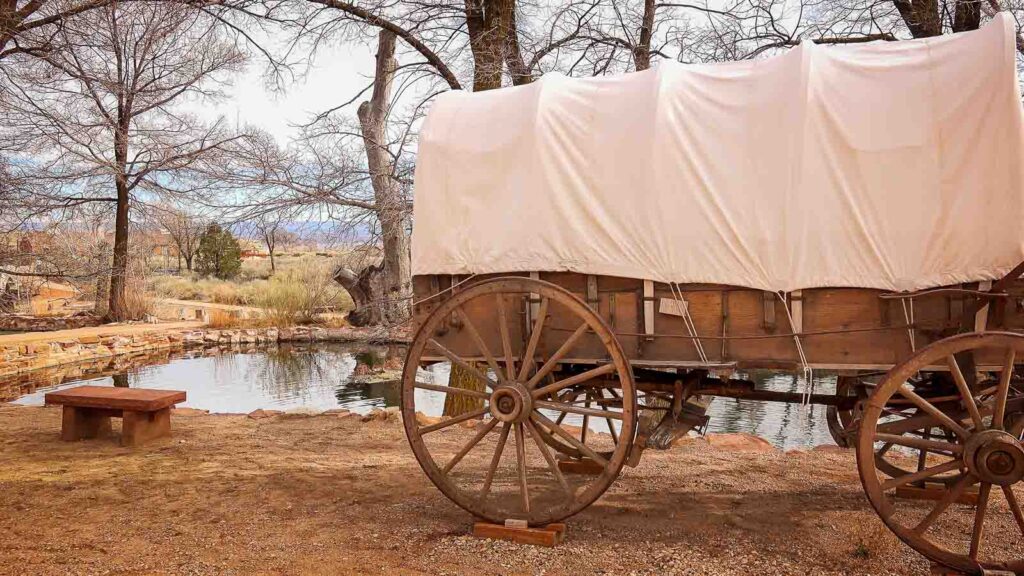
- Visitors: 24,016
Pipe Spring was a vital water source for Native Americans and early pioneers. The monument includes the historic fort and ranch house. You’ll see how water created a lifeline in the desert, complete with historic buildings and gardens. The spring itself is a central feature, highlighting the importance of water in this arid landscape.
Activities: Tour the historic fort and ranch house to get a feel for frontier life, and stroll through the gardens that rely on the spring.
21. Fort Bowie National Historic Site, Bowie
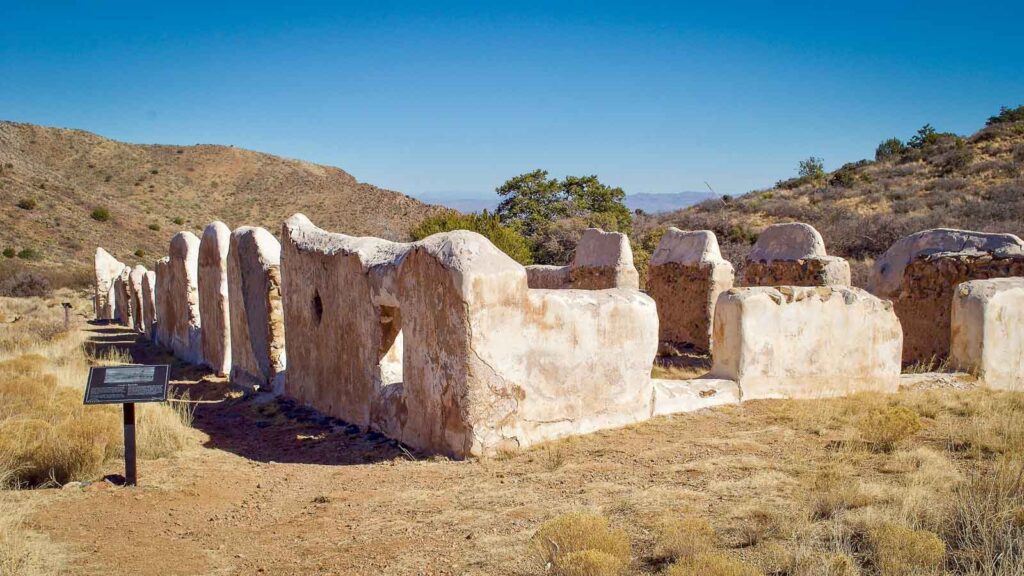
- Visitors: 8,333
Fort Bowie played a key role during the Apache Wars, and its ruins tell the story of frontier military life. The site covers 1,000 acres and includes the fort ruins, a cemetery, and historical markers. You’ll find remnants of barracks, a hospital, and other structures that were once a bustling military post.
Activities: Hike the scenic trail to the fort ruins and visit the cemetery to pay respects to those who lived and died here.
Catherine, a seasoned travel writer, has lived in 4 different states and explored 36 states and 28 national parks. After spending two years embracing van life, she's now dedicated to sharing her vast knowledge of day trips across America. Catherine's other works has been referenced in major publications like MSN, Self, and TripSavvy.
| MY FAVORITE TRAVEL RESOURCES |
✈️ Find amazing guided tours and experiences with Viator to maximize your time! 🏘️ Plan ahead and secure your accommodation with Booking.com in advance. 🧾 Rent a car with Discovercars in advance and get the best prices for your day trip adventures. |

